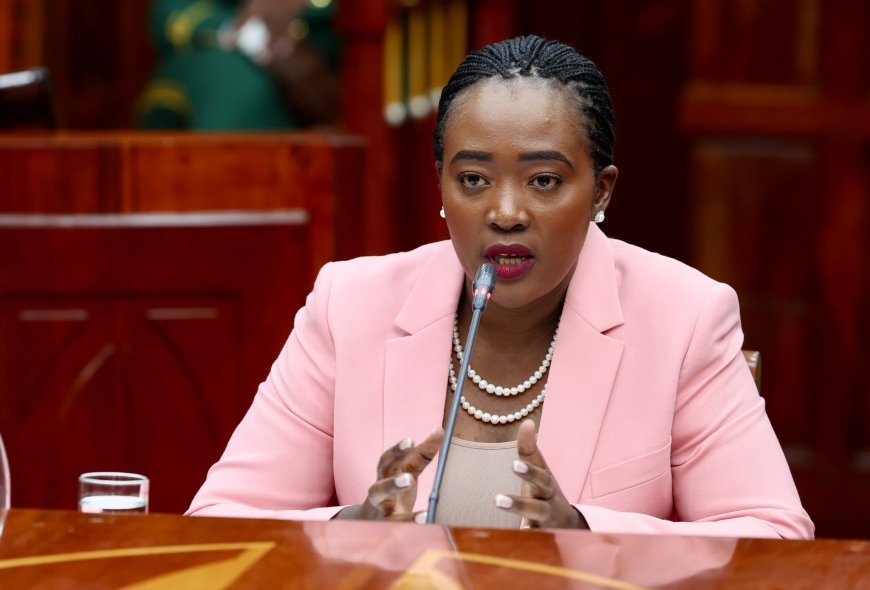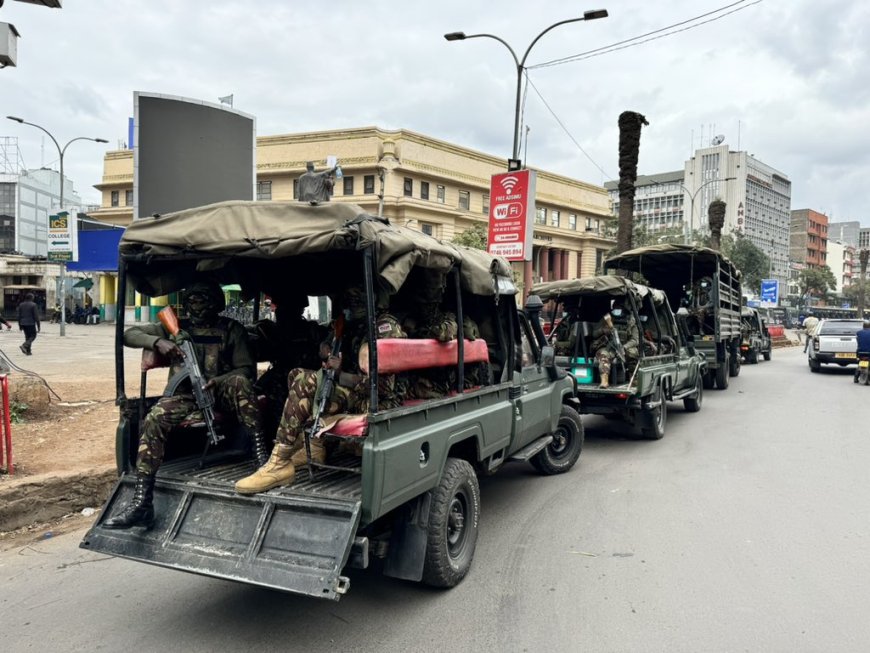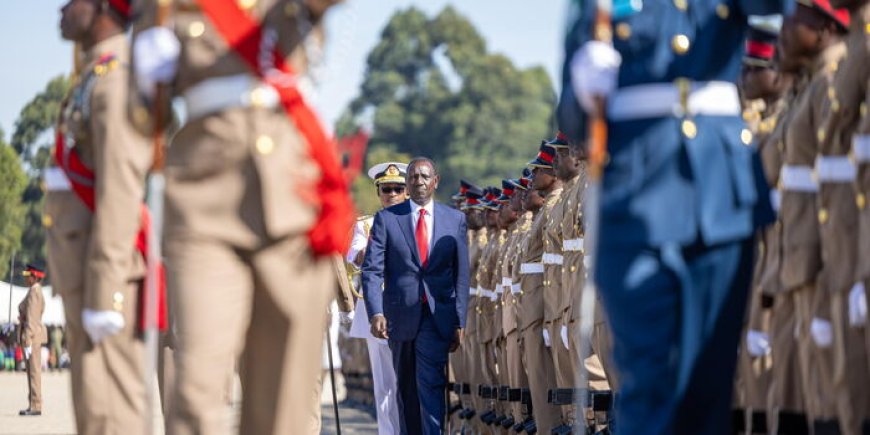Soipan Tuya Hints At Recalling KDF Deployed During Anti-Govt Protests
She however noted that the Gazette notice by her predecessor, Duale, which authorised the deployment of the military, is still active.

Defence Cabinet Secretary nominee Soipan Tuya has offered some respite to a section of Kenyans who have expressed their reservations regarding the deployment of Kenya Defence Forces (KDF) soldiers to assist the police in quelling unrest as a result of the recent anti-government protests.
Appearing on Thursday, August 1 before the National Assembly Appointments Committee, the former Environment CS who was recently exchanged with her counterpart Aden Duale in the Defence docket, revealed that should she be appointed, she would re-examine the deployment in line with the security status within the country.
Tuya disclosed that two options would be laid on the table; whether to extend the duration of the KDF deployment to civilian streets in light of a volatile situation as a result of the protests or to recall the military officers if normalcy resumes.
She however noted that the Gazette notice by her predecessor, Duale, which authorised the deployment of the military, is still active.

KDF officers on patrol in Nairobi CBD. /LARRY MADOWO
"The question on the Gazette notice deploying the KDF, it is still live and the time duration is until the normalcy is restored.
"I think it is an issue that upon confirmation is to go back and assess the situation with a view to lay the utility of whether to keep on having the deployment subsisting or to bring it to a halt given that a fair amount of normalcy actually has been restored with regard to the recent unrest in the country," she revealed.
The deployment of the military was challenged by the Law Society of Kenya (LSK) at the High Court which however ruled that the intervention was justified, though finding that it was clear that the public had not been fully appraised of the extent of the military involvement.
Duale on June 25 gazetted military deployment to support the National Police Service (NPS) in restoring normalcy in the country. National Assembly Majority Leader Kimani Ichung'wah thereafter tabled a motion to legally ratify the government's decision to deploy military troops on Kenyan soil.
Three days later, another Gazette notice released by Duale gave specifics of the deployment, including to all the 47 counties and the duration being unspecified, though indicating that it would continue until normalcy is restored.
Subsequent protests have seen the KDF deployed only once to patrol the streets of Nairobi, this being on June 27. The officers were thereafter not spotted on civilian streets, despite some of the protests turning violent. With more protests planned for Thursday, August 8, it could be a while until the KDF are recalled.
Meanwhile, Tuya, in defence of the deployment, stated that the military is Constitutionally mandated to step up and restore unrest in the country if the National Police Service requires assistance, citing two instances stipulated in the Constitution when the armed forces can be deployed in the country.
In the first scenario, Tuya said that the KDF can be tasked to restore order or save lives, only in emergencies or natural calamities such as floods and earthquakes, where no parliamentary approval is required. Under this deployment form, the KDF is expected to swing into action first, and then file a report to parliament later.
Tuya noted that under this facet, the military is second to other security agencies since it only comes to offer assistance and is not in charge of the entire operation.
“One core mandate of KDF is defence and protection of territorial integrity of the country as well as the country’s sovereignty. The other two key functions revolve around internal deployment which comes in two forms, a constitutional mandate of KDF Article 241 (3b) where they can come to assist and cooperate with other agencies in instances of emergency and disaster such as Mai Mahiu floods,” she explained.
The second form of deployment involves the military seeking authority from the parliament before undertaking any operation, a matter which, Tuya pointed out, the KDF now takes control of the entire mission and if approved, takes the frontline as the other agencies offer assistance.
“The other facet of deployment is Article 241 3C, an aspect of deployment which cannot happen without the authority of parliament,” she said, adding “To keep peace in instances of instability in the country which cannot happen without the express approval of parliament and in that instance, the KDF take the frontline in terms of operations.”







